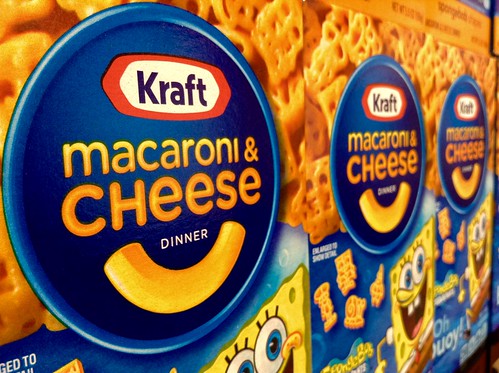Kraft Heinz (NASDAQ:KHC) investors are up 3.4% in the past week, but earnings have declined over the last five years
Kraft #Kraft

While it may not be enough for some shareholders, we think it is good to see the The Kraft Heinz Company (NASDAQ:KHC) share price up 18% in a single quarter. But if you look at the last five years the returns have not been good. After all, the share price is down 17% in that time, significantly under-performing the market.
Although the past week has been more reassuring for shareholders, they’re still in the red over the last five years, so let’s see if the underlying business has been responsible for the decline.
See our latest analysis for Kraft Heinz
While the efficient markets hypothesis continues to be taught by some, it has been proven that markets are over-reactive dynamic systems, and investors are not always rational. By comparing earnings per share (EPS) and share price changes over time, we can get a feel for how investor attitudes to a company have morphed over time.
Kraft Heinz became profitable within the last five years. That would generally be considered a positive, so we are surprised to see the share price is down. Other metrics may better explain the share price move.
The most recent dividend was actually lower than it was in the past, so that may have sent the share price lower.
The graphic below depicts how earnings and revenue have changed over time (unveil the exact values by clicking on the image).
earnings-and-revenue-growth
Kraft Heinz is well known by investors, and plenty of clever analysts have tried to predict the future profit levels. So we recommend checking out this free report showing consensus forecasts
What About Dividends?
When looking at investment returns, it is important to consider the difference between total shareholder return (TSR) and share price return. The TSR incorporates the value of any spin-offs or discounted capital raisings, along with any dividends, based on the assumption that the dividends are reinvested. Arguably, the TSR gives a more comprehensive picture of the return generated by a stock. As it happens, Kraft Heinz’s TSR for the last 5 years was 4.6%, which exceeds the share price return mentioned earlier. This is largely a result of its dividend payments!
Story continues
A Different Perspective
Kraft Heinz shareholders are down 5.2% for the year (even including dividends), but the market itself is up 23%. However, keep in mind that even the best stocks will sometimes underperform the market over a twelve month period. Longer term investors wouldn’t be so upset, since they would have made 0.9%, each year, over five years. It could be that the recent sell-off is an opportunity, so it may be worth checking the fundamental data for signs of a long term growth trend. I find it very interesting to look at share price over the long term as a proxy for business performance. But to truly gain insight, we need to consider other information, too. Even so, be aware that Kraft Heinz is showing 1 warning sign in our investment analysis , you should know about…
Of course Kraft Heinz may not be the best stock to buy. So you may wish to see this free collection of growth stocks.
Please note, the market returns quoted in this article reflect the market weighted average returns of stocks that currently trade on American exchanges.
Have feedback on this article? Concerned about the content? Get in touch with us directly. Alternatively, email editorial-team (at) simplywallst.com.
This article by Simply Wall St is general in nature. We provide commentary based on historical data and analyst forecasts only using an unbiased methodology and our articles are not intended to be financial advice. It does not constitute a recommendation to buy or sell any stock, and does not take account of your objectives, or your financial situation. We aim to bring you long-term focused analysis driven by fundamental data. Note that our analysis may not factor in the latest price-sensitive company announcements or qualitative material. Simply Wall St has no position in any stocks mentioned.